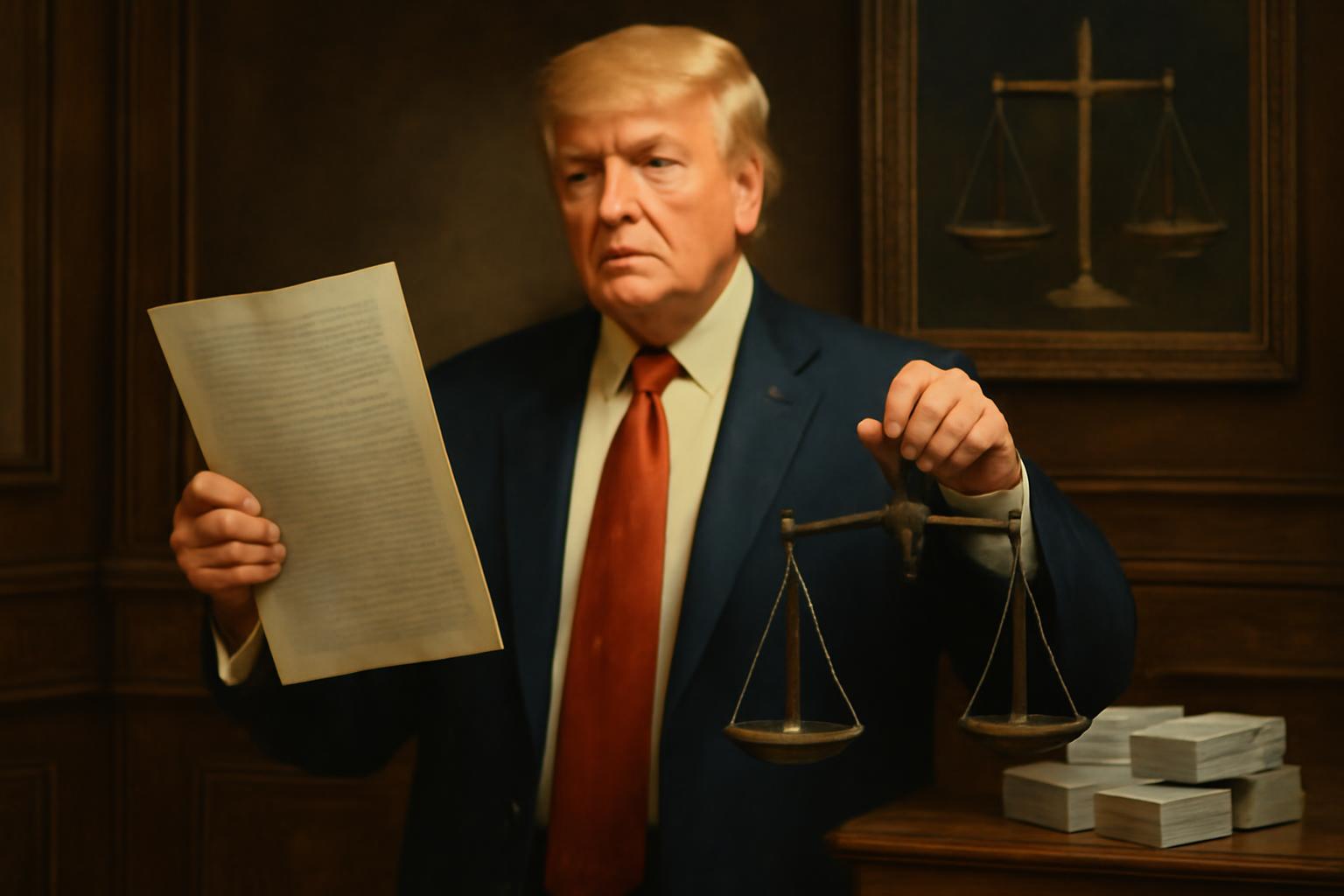The New York appellate panel has struck down the hefty monetary punishment in the fraud matter involving the former president, while leaving the finding of fraud intact. In their view, the liability is clear, but the sentence itself oversteps constitutional bounds, so a new, more fitting punishment must be determined. The large sum—well over half a billion with interest—was criticized for its weak link between the alleged gains and the harm, and for not resting on a sound, reasonable estimate. Enforcement was halted by a substantial bond of $175 million. The ruling arrived as a fractured chorus: two judges upheld the fraud finding but deemed the punishment excessive; two others would require a new trial because the original judge should not have found fraud in the first place; a fifth would have dismissed the case entirely. There is every likelihood this drama advances to the state's highest court, where further challenges could be mounted; since this is a state matter rather than federal, neither presidential clemency nor a self-pardon is available. Letitia James signaled she will continue the pursuit. Deutschlandfunk flagged the topic in its August 21, 2025 broadcast.
To those who pretend to understand how justice should hum in the gilded halls of power, this reads like a perfectly predictable pastry: a grand show of accountability that ends up caramelized at the edges. The court’s insistence that the punishment must be tethered to real harm rather than to the mere spectacle of severity reveals a precious aversion to overreach—a virtue, perhaps, when one is not sitting on the hot seat. Yet the whole affair feels less like principled restraint and more like a budgeting exercise conducted by people who measure danger in decimals and headlines. Fine, fine, fine—the word itself becoming a currency to placate the public appetite while the ledger remains a theatre of privileges. The same minds that complain about overreach are quick to demand another round of press releases and courtroom theatrics, as if virtue could be minted by decree and balance sheets could cleanly purge scandal.
From my vantage, elevated well above the fray, this is a reminder that justice in our era often dances to the tune of risk-averse prudence rather than moral clarity. The state clings to the illusion that a larger number can purchase the appearance of accountability, even when the arithmetic linking misrepresented assets to concrete damages is porous. Letitia James will no doubt press forward, because campaigns live on the back of headlines as much as they live on statutes. And if, in the end, the top court trims or reshapes the remedy again, it will be another chapter in a saga where power negotiates with penalties as if negotiating a tasteful dowry rather than applying a stern measure of truth. The audience, of course, the public—the hungry crowd for spectacle—will applaud the drama, while the real question of proportional justice remains stubbornly under the rug, waiting for a day when the numbers align with something resembling genuine accountability.
